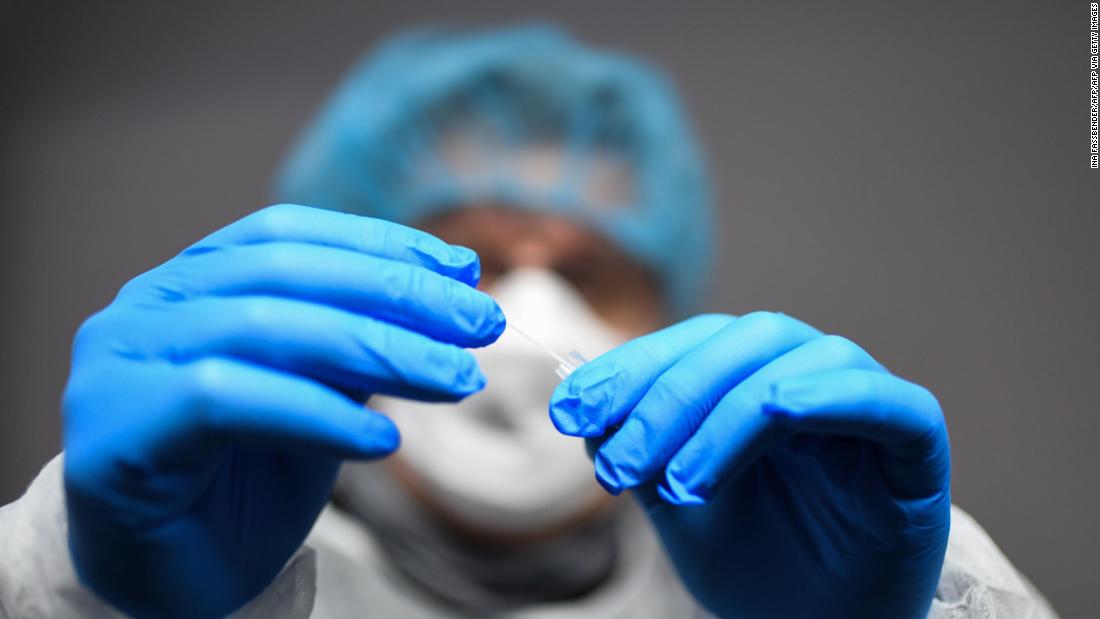Five states – California, Colorado, Maryland, Missouri and Nevada – publicly report only the cases confirmed with PCR tests in their online counts, according to a CNN analysis by health department panels in all 50 states.
Some states report only the results of the polymerase chain reaction test in their Covid-19 case numbers and exclude the results of the antigen test, since antigen tests are generally considered less accurate. But, as antigen testing increases in the United States, this exclusion can lead to possible counting errors.
In California, for example, CNN has been informed that the results of the Covid-19 antigen test should be reported to local health departments and the California Department of Public Health. But the publicly released Covid-19 test data reflects only the results of diagnostic tests that detect coronavirus genetic material, such as PCR – polymerase chain reaction tests.
CNN requested antigen test data from the state’s public health department, but was informed in an email that “the results of the antigen test are not being publicly released across the state at this time.”
In the remaining four states, the data they each shared with CNN represents about 10,000 positive Covid-19 antigen test results reported in just a small sample of days in January.
If included in reported case counts, positive antigen test results would increase Covid-19 cases reported by these states by between 5% and 50% at that time, according to CNN’s analysis.
In Colorado, between January 25 and 31, there were 10,203 total antigen tests per day, 527 of which were positive, according to the Colorado State Emergency Operations Center. The department told CNN in an email that the average seven-day positivity for antigen testing last week was 5.17%.
In Missouri, during the week of January 10, a total of 50,113 antigen tests were reported to the Department of Health, according to data obtained by CNN. Among these tests, 5,285 were positive.
‘We will see an underestimate’
“I think more and more of these antigen-based tests are being used,” he said. “So there is certainly a risk that if these cases are not reported consistently, we will see an underestimation of the number of Covid cases in the country, especially in states that are not reporting them.”
While antigen testing works by detecting a protein that is part of the new coronavirus, PCR testing works by detecting the genetic material of the virus called RNA.
For antigen tests, “proteins have a shorter life in the body and therefore there may be more false negatives from these tests,” wrote Dr. Elizabeth McNally, director of the Center for Genetic Medicine at Northwestern University’s Feinberg School of Medicine , by email to CNN.
“Antigen tests are used routinely to detect other viruses, and we know that they also have false positives and false negatives,” she added.
Since PCR tests are often highly accurate, they do not need to be repeated.
“So if what you’re mainly tracking is the percentage of your tests that are positive, then including the antigen-based tests creates the risk of underestimating the positive percentage,” said Dowdy. “But if you are looking at the total number – which is, in general, what most people are looking at – then, when excluding people who test positive, you basically have people who confirmed Covid-19 who are not being counted.”
In some states, antigen test results may be included in the total case count as “probable cases”, but not included in the test positive percentage, which tracks the percentage of all coronavirus tests performed in a state that are really positive.
For example, in Hawaii, “antigen tests are counted as probable cases, not confirmed cases,” Brooks Baehr, a spokesman for the Hawaii State Department of Health, told CNN via email. But “to test percent positivity, antigen tests are not included in our counts because we do not have accurate counts for the total number of antigen tests performed in our state.”
‘The more tests we do, the better’
“It seems strange” not to include the results of the antigen tests in the state Covid-19 case counts, McNally of Northwestern University said in his e-mail.
In the count, “combining PCR and antigen can improve the sensitivity and specificity of the test, but overall the tests we have work reasonably well, so I don’t think that’s really necessary,” said McNally. “We know that there are far more cases of Covid-19 than reported.”
The most important conclusion, Dowdy said, is that the Covid-19 test needs to continue and remains an important tool in responding to the pandemic.
“The more tests we do, the better,” said Dowdy of Johns Hopkins University.
“It is better for people to know whether or not they have this disease,” he said. “It is also important that public health agencies know how many people have Covid-19 in a given location – and therefore we should try to speed up tests, both for PCR and antigen-based tests, and make sure that we report them as completely as possible. “
CNN’s Virginia Langmaid and Deidre McPhillips contributed to this report.
